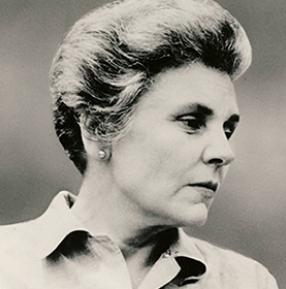On this date in 1911, American poet and short-story writer Elizabeth Bishop was born in Worcester, Mass. Bishop, an only child, lost both of her parents when she was very young. Her father died when she was only a year old and her mother was committed to a mental institution when she was 5, dying there 18 years later. For the rest of her childhood, she was passed between relatives who were able to take care of her. She first lived with her maternal grandparents in Nova Scotia but soon moved to live with her paternal relatives in Worcester and South Boston. They were concerned about the limited education and financial resources available in Nova Scotia.
She attended Walnut Hills School for Girls, an independent boarding school for the arts and went on to earn her B.A. in English from Vassar College. At Vassar, she helped found the rebellious, student literary newspaper Con Spirito. It merged after three issues with the Vassar Review.
After graduation, Bishop traveled to numerous countries, including France, Spain, Ireland, Italy and several in North Africa. She continued to travel and live all over the world for much of her life. She published 101 poems, painstakingly crafting each piece. Her poetry incorporates descriptions of her journeys abroad, in addition to struggles to find a sense of belonging and the human experiences of grief and longing. “Her poetry speaks to many issues that are urgent today: gender identity, our difficult relationship to foreign cultures and postcolonial realities, the way that science and reason can sometimes do violence to the world,” wrote Bonnie Costello, author of Elizabeth Bishop: Questions of Mastery. As a metaphysically minded poet, Bishop is featured in The Joy of Secularism: 11 Essays for How We Live Now, which discusses her particular interest in Darwin’s work and her views on secularism.
In 1949 she was appointed to serve as U.S. Poetry Laureate Consultant to the Library of Congress for the year. Bishop won several awards, including the Pulitzer Prize for Poetry in 1956, the National Book Award for Poetry in 1970 and the Neustadt International Prize for Literature in 1976. In her later years, she lectured at the University of Washington, at Harvard University for seven years and at the Massachusetts Institute of Technology. Bishop died in her Boston apartment of a cerebral aneurysm. (D. 1979)


